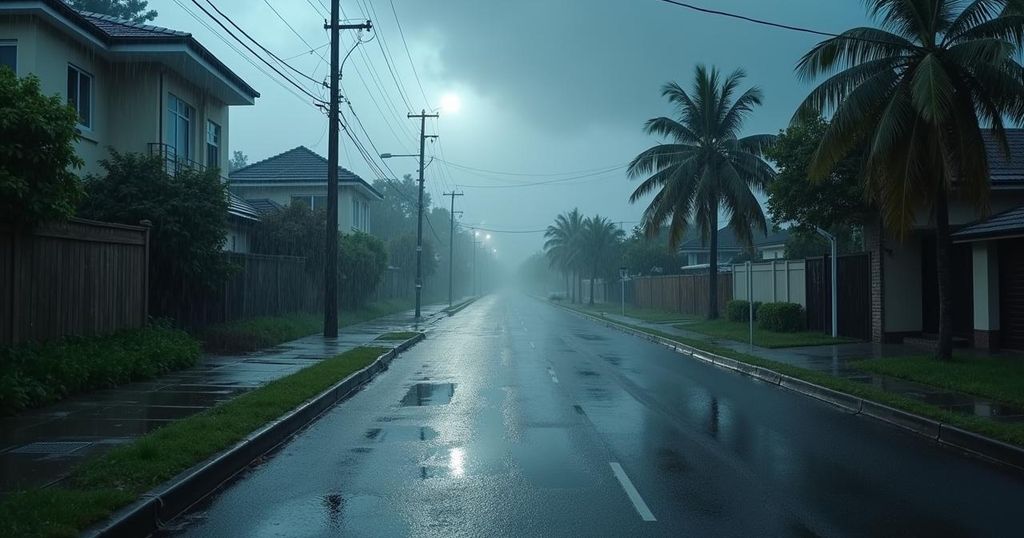Climate Change Intensifies Hurricane Impacts: Helene and Milton

A recent study highlighted that climate change intensified Hurricane Helene’s wind and rainfall, and similar impacts are expected for Hurricane Milton. Human activities have made conditions for hurricanes like Helene significantly more likely, leading to catastrophic effects such as inland flooding and extensive damage across several states. Experts underscore the urgent need for improved preparedness and sustainable practices to mitigate climate impacts.
Recent analysis reveals that human-induced climate change has significantly exacerbated the severity of Hurricane Helene and may influence the impending Hurricane Milton. According to a rapid study by World Weather Attribution (WWA), the impacts of climate change increased Helene’s rainfall by approximately 10% and intensified its wind speeds by around 11%. The study indicated that the warmer ocean temperatures, which fueled Helene, had a likelihood of being 200 to 500 times greater than in previous climates, with Gulf of Mexico temperatures observed to be about 3.6 degrees Fahrenheit (2 degrees Celsius) above the average. Ben Clarke, a co-author of the study and a climate researcher at Imperial College London, explained that the combination of warmer air and increased moisture retention from climate change significantly raised rainfall totals which, even without these changes, were already expected to be extraordinarily high. The potential for a similar intensification in Hurricane Milton remains a concern as it approaches the Florida coastline. Hurricane Helene resulted in catastrophic damage upon landfall, registering a record storm surge of 15 feet (4.57 meters) and sustained winds reaching 140 miles per hour (225.31 kilometers per hour). The storm wreaked havoc across several states, leading to over 230 fatalities, widespread power outages, and extensive flooding that extended well inland, illustrating the profound threats posed by such hurricanes in a warming climate. Helene delivered an unprecedented 40 trillion gallons of rainfall, a quantity further intensified by climate fluctuations. The likelihood of hurricanes of Helene’s intensity has increased substantially; they were once projected to occur every 130 years but are now approximately 2.5 times more frequent. While the WWA’s research methods have not undergone peer review, they employ recognized scientific approaches to assess climate change’s influence on extreme weather events. Additional research from Lawrence Berkeley National Laboratory substantiated the findings, estimating that climate change has caused a notable increase in rainfall in affected regions. Experts stress that the consequences of ongoing fossil fuel consumption will lead to more intense hurricanes with catastrophic flooding potential, underscoring the urgent need for enhanced disaster preparedness and adaptation strategies. Amidst these pressing concerns, Kim Cobb, director of the Institute at Brown for Environment and Society, emphasized the importance of reconsidering energy frameworks to mitigate future climate risks.
The article addresses the correlation between climate change and the intensified impacts of hurricanes, particularly focusing on Hurricane Helene, which experienced exacerbated rainfall and wind severity as a consequence of human-induced climate change. It contextualizes these findings within the broader implications for future hurricanes, like Milton, emphasizing the urgency for climate action and preparedness.
In conclusion, the analysis substantiates the assertion that human-caused climate change has markedly augmented the intensity and destructiveness of hurricanes, with Helene exemplifying these effects. The impending Hurricane Milton is expected to exhibit similar changes, signifying a pressing need for adaptation measures in response to the increasingly frequent and severe hurricane threats posed by climate change.
Original Source: phys.org






